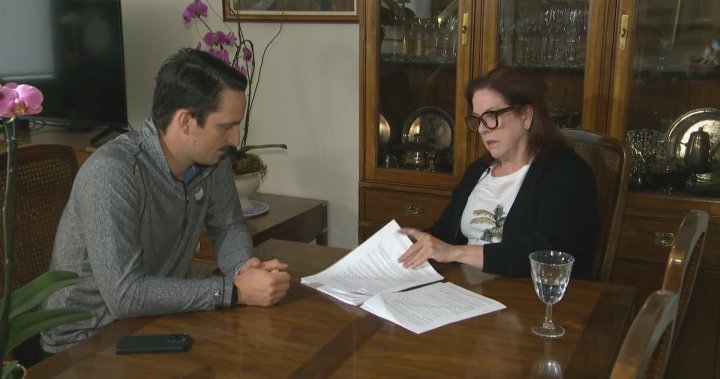The money trail has gone cold for a Calgary woman who fell victim to an elaborate romance scam, leaving her $800,000 poorer and fighting an uphill battle with her bank. The case highlights a growing trend of sophisticated fraud targeting vulnerable Albertans, particularly through online dating platforms.
Linda Harrison (name changed to protect privacy) never imagined she’d become the victim of fraud. At 61, the retired healthcare worker thought she’d found companionship with a man she met on a popular dating app last summer. What followed was a carefully orchestrated scam spanning months that drained her retirement savings.
“He was charming, attentive, and seemed genuinely interested in building a relationship,” Harrison told me during our interview at a local coffee shop. Her eyes welled with tears as she recounted how the relationship progressed from casual conversations to discussions about investment opportunities. “Looking back, I can see the red flags, but at the time, everything seemed legitimate.”
According to the Calgary Police Service, romance scams have increased by approximately 30% since 2021, with reported losses exceeding $3.2 million last year alone. Detective Sarah Martinez from the CPS Cyber Crimes Unit notes that these scams have become increasingly sophisticated.
“What we’re seeing now are highly organized operations that groom victims over extended periods,” Martinez explained. “They create elaborate backstories, fake business proposals, and even falsified investment platforms that appear completely legitimate.”
Harrison’s case followed a typical pattern. After establishing trust over several months, her online companion introduced her to what he described as an exclusive investment opportunity. The platform appeared professional, complete with real-time data and customer testimonials. Over the course of six months, Harrison transferred approximately $800,000 to various accounts.
When she attempted to withdraw funds, the website became inaccessible. Her romantic interest disappeared, and Harrison realized she’d been defrauded. She immediately contacted TD Bank, where she’d conducted the transactions, only to face another hurdle.
“They told me there was nothing they could do because I had authorized the transfers,” Harrison said. “I provided them with all the evidence of the scam, but they maintained I was responsible.”
The Canadian Anti-Fraud Centre confirms that financial institutions are not typically obligated to reimburse victims of authorized fraud, regardless of deceptive circumstances. However, consumer advocates argue banks should implement better protections.
Mary Williams, director of the Alberta Consumer Protection Alliance, believes financial institutions need to take more responsibility. “Banks have sophisticated fraud detection systems. When an elderly client suddenly begins making unusual large transfers to international accounts, that should trigger immediate intervention.”
TD Bank declined to comment specifically on Harrison’s case, citing privacy concerns. However, a spokesperson provided a statement noting that they “take fraud very seriously and have robust measures in place to detect suspicious activities.”
The Canadian Bankers Association reports that banks prevented $1.2 billion in fraud attempts last year, but acknowledges that authorized transfers remain challenging to monitor without violating customer autonomy.
For Harrison, the financial loss represents more than money. “That was my retirement, my security,” she said. “Now I’m working part-time at 61 just to make ends meet.”
Local senior advocacy groups have responded by organizing fraud awareness workshops throughout Calgary communities. The Calgary Seniors’ Resource Society has partnered with local police to develop educational programs specifically targeting romance scams.
“Education is our best defense,” said Robert Chang, director of the society. “We teach seniors about verification techniques and encourage them to discuss financial decisions with trusted family members or financial advisors before making significant transfers.”
The Calgary Police Service recommends several precautions for online relationships, including researching potential romantic interests, never sending money to someone you haven’t met in person, and being suspicious of investment opportunities presented by romantic partners.
Harrison has joined a support group for fraud victims and is working with a legal aid attorney to explore her options. While recovery of her funds seems unlikely, she hopes sharing her story will prevent others from facing similar heartbreak.
“I never thought I’d be vulnerable to something like this,” Harrison admitted. “But these scammers are professionals. They know exactly what to say and do to earn your trust.”
As Calgary’s population ages and more seniors venture into online dating, experts predict romance scams will continue to rise unless financial institutions, law enforcement, and consumers work together to create stronger safeguards.
If you suspect you’ve been targeted by a romance scam, contact the Canadian Anti-Fraud Centre at 1-888-495-8501 and your local police service immediately. The sooner authorities can trace the money trail, the greater the chance of recovery.
For those of us covering Calgary’s local news beat, these stories serve as crucial reminders that fraud doesn’t just happen to “other people.” It happens right here in our communities, to our neighbors and friends, often leaving devastating financial and emotional scars in its wake.







